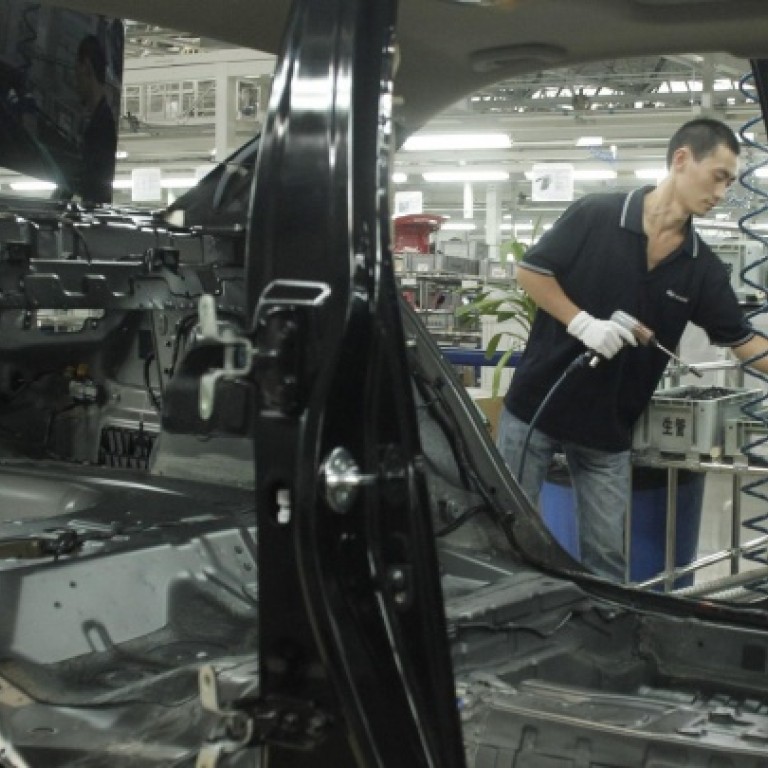
Mando China helped by Kia, Hyundai ties
South Korean car parts maker may use proceeds of planned offering in HK to fund two plants in Sichuan and Guangdong
The initial public offering of car parts maker Mando China may not attract too much attention for its size as a listing candidate, but its client list is turning heads. It will also be the first South Korean company to go public in Hong Kong.
Car parts suppliers in China are facing pricing pressures and stiff competition. Mando China, with its ties to Hyundai and Kia, may have an advantage over them. Both Korean carmakers have expansion plans in the world's largest car market over the next two-and-a-half years.
According to a pre-listing document filed with the Hong Kong stock exchange, Hyundai and Kia were the source of about half of Mando China's revenue last year; fast-growing brands like General Motors and Geely provided the rest.
Mando China - a spin-off from Mando Korea, which has been part of the Hyundai Group since 1980 - said in the 361-page document that it was gaining new orders from Volvo, BYD, Guangzhou Automotive Corp and FAW-Volkswagen.
"If you want to know whether a stock is worth investing in, the company's ability to source new clients is one crucial factor to consider," said John Lu, a car industry analyst at Guosen Securities.
Sources said the company aimed to raise up to US$350 million to fund two new production plants in Sichuan and Guangdong, subject to the outcome of meetings with potential investors from Wednesday.
They said the shares would be offered on May 20 and list on May 31. A quarter of the issuance will be new shares, and 10 per cent will be reserved for public subscription.
The offering may not attract small investors looking for high dividend returns.
According to the pre-listing document, two of the company's subsidiaries, Mando Beijing Chassis and Mando Suzhou, will restrict their dividend payout ratio to 20 per cent in the coming year. But that dividend is subject to a 22 per cent withholding tax that foreign-registered companies are obliged to pay.
The company's total dividend payout nearly halved last year. It totalled 170 million yuan (HK$215 million), compared with 307 million yuan in 2011.
Castor Pang Wai-sun, head of research at brokerage firm Core-Pacific Yamaichi, said investors could realise gains in other ways.
"If a company is growing quickly, perhaps it is better for it not to pay dividends, because the undistributed profit would then be reflected in its share price, and investors can sell their shares to realise the gain, which is more direct."
Mando China's financial performance this year has been called into question.
A 50 per cent income tax waiver for two of its subsidiaries, Mando Harbin and Mando Tianjin, was not renewed after the concession expired last year.
The group's other major subsidiary, Mando Beijing Chassis, which still enjoys a 15 per cent waiver on income tax, will lose the tax break when the waiver expires in October next year.
The company's net profit rose 28 per cent year on year to 155 million yuan in the first quarter of this year. Its net profit last year edged down 0.3 per cent to 498 million yuan. Its gross profit margin fell 1.6 percentage points last year, to 21 per cent, amid vigorous competition.
